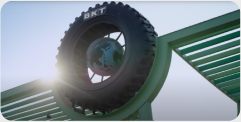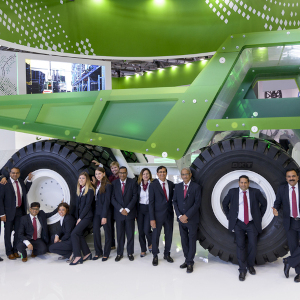BKT pride ourselves on meeting our customers’ needs. Enter: AGRIMAX FORTIS, a tyre equipped with a special compound that draws on the technology used in industrial tractor tyres. This makes AGRIMAX FORTIS seven times more resistant than standard tyres. Discover more in our latest blog!
Your farm is unique, and so are your needs as a farmer. How do you go about choosing the right tire if your land is especially hard on your agricultural tires? You call an expert to find out what solution is best for you.
Based on the requests and valuable feedback of some of our customers, BKT has developed very specific solutions. One of these is AGRIMAX FORTIS, a tire equipped with a special compound that draws on the technology used in industrial tractor tires. This makes AGRIMAX FORTIS seven times more resistant than standard tires.
Designed to meet the customer’s challenges
“How to fix cracked tractor tires” is a question that many farmers are tired of asking, especially if their daily activities take place in a rocky terrain. BKT’s technicians and researchers work hard to translate the needs of the various agricultural businesses into unique products.
The feedback from our customers has been essential in developing the special compound for AGRIMAX FORTIS, which is designed to meet challenges such as cuts, punctures, cracks, wear and tear.
The special compound
When BKT’s R&D developed the special compound of AGRIMAX FORTIS, they used technology from industrial tires. The result is a tire with improved resistance – also in tough conditions and rocky terrain.
We even tested the resistance of AGRIMAX FORTIS, getting impressive results.
After 500 hours of work on a rocky soil, AGRIMAX FORTIS was in perfect condition. In comparison, regular tires would on average have required seven repairs during the same time span under similar conditions.
The perfect fit
Finding the perfect agricultural tire for you and your farm is also a matter of sustainability and cost-efficiency. Finding a tire that perfectly fits your use will automatically extend its life cycle, and reduce fuel consumption.
AGRIMAX FORTIS is a radial tire designed for operations like haulage, soil tillage and soil preparation. It ensures outstanding traction on difficult terrain as well as a high flotation capacity – features that result in both lower soil compaction and low rolling resistance. This means fuel saving as well as lower environmental emissions. A win-win situation.






